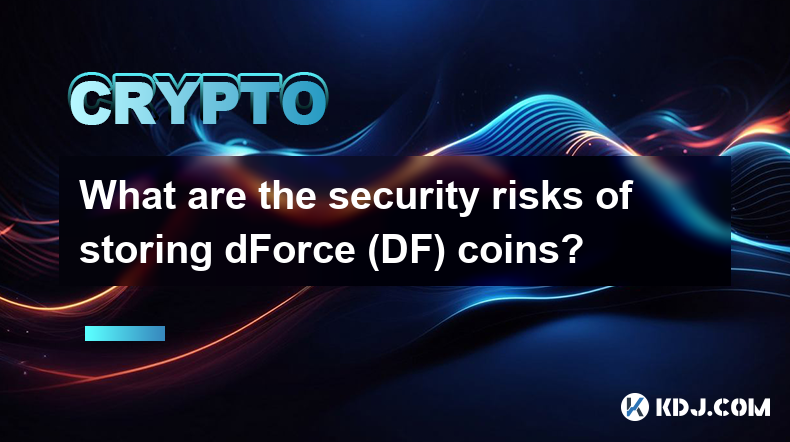-
 Bitcoin
Bitcoin $109,062.1761
0.15% -
 Ethereum
Ethereum $2,620.9224
1.68% -
 Tether USDt
Tether USDt $1.0001
0.00% -
 XRP
XRP $2.3781
3.48% -
 BNB
BNB $661.4703
0.05% -
 Solana
Solana $153.4324
1.30% -
 USDC
USDC $0.9999
-0.01% -
 TRON
TRON $0.2872
0.25% -
 Dogecoin
Dogecoin $0.1730
0.91% -
 Cardano
Cardano $0.6033
2.85% -
 Hyperliquid
Hyperliquid $39.2371
2.69% -
 Sui
Sui $2.9402
1.59% -
 Bitcoin Cash
Bitcoin Cash $507.2080
1.65% -
 Chainlink
Chainlink $14.0130
3.69% -
 Stellar
Stellar $0.2734
7.33% -
 UNUS SED LEO
UNUS SED LEO $9.0216
-0.44% -
 Avalanche
Avalanche $18.4566
1.58% -
 Hedera
Hedera $0.1678
5.35% -
 Shiba Inu
Shiba Inu $0.0...01199
1.06% -
 Toncoin
Toncoin $2.8132
1.56% -
 Litecoin
Litecoin $88.1308
1.48% -
 Monero
Monero $320.8895
0.94% -
 Polkadot
Polkadot $3.5089
3.51% -
 Dai
Dai $1.0000
0.00% -
 Ethena USDe
Ethena USDe $1.0006
0.05% -
 Bitget Token
Bitget Token $4.3376
0.57% -
 Uniswap
Uniswap $7.9118
4.23% -
 Aave
Aave $297.7470
4.11% -
 Pepe
Pepe $0.0...01021
1.83% -
 Pi
Pi $0.4631
1.26%
What are the security risks of storing dForce (DF) coins?
2025/01/06 15:50

Key Points:
- Understanding the nature of dForce (DF) coins and their storage options
- Assessing vulnerabilities associated with different storage methods
- Identifying best practices for mitigating security risks
Security Risks of Storing dForce (DF) Coins
1. Loss or Theft from Centralized Exchanges
- Centralized exchanges hold user funds in custodial wallets, making them a target for hackers
- If an exchange is compromised, users may lose their DF coins permanently
- Weak password protection or account vulnerabilities can allow unauthorized access
- Consider using hardware wallets or decentralized exchanges for more secure storage
2. Private Key Compromise
- Private keys are essential for accessing and spending DF coins
- If your private key is compromised, your funds are at risk
- Store private keys securely offline, such as on a hardware wallet or paper backup
- Avoid storing private keys on connected devices or online accounts
3. Malicious Smart Contracts
- Smart contracts can be coded with vulnerabilities that allow hackers to steal funds
- DF coins may be vulnerable to exploits if they interact with malicious smart contracts
- Exercise caution when interacting with unfamiliar contracts, especially those requiring approval of large transactions
4. Phishing and Scams
- Phishing emails or malicious websites may trick users into providing their private keys
- Scammers impersonate legitimate services or exchanges to gain access to funds
- Be vigilant about suspicious emails, website addresses, and requests for sensitive information
5. Hardware Wallet Vulnerabilities
- While hardware wallets offer improved security, they are not immune to vulnerabilities
- Malicious firmware updates or physical tampering can compromise hardware wallets
- Always purchase hardware wallets from reputable manufacturers and keep firmware up to date
Best Practices for Security
- Use a hardware wallet. Hardware wallets store private keys offline, providing the highest level of security.
- Implement 2-factor authentication. Enable 2FA on centralized exchanges and other accounts to prevent unauthorized access.
- Only interact with trusted smart contracts. Research smart contracts thoroughly before interacting with them.
- Be wary of phishing scams. Never share your private key or sensitive information with anyone.
- Keep your software up to date. Security patches and updates address vulnerabilities.
FAQs
1. What is the most secure way to store dForce (DF) coins?
- The most secure way to store dForce (DF) coins is to use a hardware wallet. Hardware wallets keep your private keys offline, making them less vulnerable to hacks.
2. Can I store dForce (DF) coins on a centralized exchange?
- Yes, you can store dForce (DF) coins on a centralized exchange, but it is not as secure as using a hardware wallet. Centralized exchanges hold your private keys, making them a target for hackers.
3. What are the risks of storing dForce (DF) coins on a hardware wallet?
There are some risks associated with storing dForce (DF) coins on a hardware wallet, such as:
- Physical theft: Your hardware wallet could be lost or stolen.
- Device failure: Your hardware wallet could malfunction.
- Malware: Your hardware wallet could be infected with malware that could steal your private keys.
4. How can I protect my dForce (DF) coins from hackers?
There are a few things you can do to protect your dForce (DF) coins from hackers, such as:
- Use a strong password. Use a strong password that is at least 12 characters long and contains a mix of upper and lowercase letters, numbers, and symbols.
- Enable two-factor authentication. Two-factor authentication adds an extra layer of security to your account by requiring you to enter a code from your mobile phone when you log in.
- Be careful about clicking on links in emails or on websites. Phishing scams often use emails or websites that look legitimate to trick you into giving up your private keys.
免责声明:info@kdj.com
所提供的信息并非交易建议。根据本文提供的信息进行的任何投资,kdj.com不承担任何责任。加密货币具有高波动性,强烈建议您深入研究后,谨慎投资!
如您认为本网站上使用的内容侵犯了您的版权,请立即联系我们(info@kdj.com),我们将及时删除。
- Nexbridge,Nexplace和比特币生态系统:建立新的金融领域
- 2025-07-09 23:10:13
- MEXC LaunchPad&Pump Token:获得40%的折扣?
- 2025-07-09 22:50:12
- 贸易系统革命:XDC和传真的结束如何重塑金融
- 2025-07-09 23:10:13
- Ripple,Clarity Act和XRP案件:纽约加密法规的纽约分钟
- 2025-07-09 23:50:12
- 没有50卢比的硬币?德里HC听到为什么印度更喜欢钞票
- 2025-07-09 23:15:11
- 没有50卢比的硬币?德里HC听到为什么钞票统治至高无上
- 2025-07-09 23:50:12
相关百科

How to customize USDT TRC20 mining fees? Flexible adjustment tutorial
2025-06-13 01:42:24
<h3>Understanding USDT TRC20 Mining Fees</h3><p>Mining fees on the TRON (TRC20) network are essential for processing transactions. U...

USDT TRC20 transaction is stuck? Solution summary
2025-06-14 23:15:05
<h3>Understanding USDT TRC20 Transactions</h3><p>When users mention that a USDT TRC20 transaction is stuck, they typically refer to ...

How to cancel USDT TRC20 unconfirmed transactions? Operation guide
2025-06-13 23:01:04
<h3>Understanding USDT TRC20 Unconfirmed Transactions</h3><p>When dealing with USDT TRC20 transactions, it’s crucial to understand w...

How to check USDT TRC20 balance? Introduction to multiple query methods
2025-06-21 02:42:53
<h3>Understanding USDT TRC20 and Its Importance</h3><p>USDT (Tether) is one of the most widely used stablecoins in the cryptocurrenc...

What to do if USDT TRC20 transfers are congested? Speed up trading skills
2025-06-13 09:56:41
<h3>Understanding USDT TRC20 Transfer Congestion</h3><p>When transferring USDT TRC20, users may occasionally experience delays or co...

The relationship between USDT TRC20 and TRON chain: technical background analysis
2025-06-12 13:28:48
<h3>What is USDT TRC20?</h3><p>USDT TRC20 refers to the Tether (USDT) token issued on the TRON blockchain using the TRC-20 standard....

How to customize USDT TRC20 mining fees? Flexible adjustment tutorial
2025-06-13 01:42:24
<h3>Understanding USDT TRC20 Mining Fees</h3><p>Mining fees on the TRON (TRC20) network are essential for processing transactions. U...

USDT TRC20 transaction is stuck? Solution summary
2025-06-14 23:15:05
<h3>Understanding USDT TRC20 Transactions</h3><p>When users mention that a USDT TRC20 transaction is stuck, they typically refer to ...

How to cancel USDT TRC20 unconfirmed transactions? Operation guide
2025-06-13 23:01:04
<h3>Understanding USDT TRC20 Unconfirmed Transactions</h3><p>When dealing with USDT TRC20 transactions, it’s crucial to understand w...

How to check USDT TRC20 balance? Introduction to multiple query methods
2025-06-21 02:42:53
<h3>Understanding USDT TRC20 and Its Importance</h3><p>USDT (Tether) is one of the most widely used stablecoins in the cryptocurrenc...

What to do if USDT TRC20 transfers are congested? Speed up trading skills
2025-06-13 09:56:41
<h3>Understanding USDT TRC20 Transfer Congestion</h3><p>When transferring USDT TRC20, users may occasionally experience delays or co...

The relationship between USDT TRC20 and TRON chain: technical background analysis
2025-06-12 13:28:48
<h3>What is USDT TRC20?</h3><p>USDT TRC20 refers to the Tether (USDT) token issued on the TRON blockchain using the TRC-20 standard....
查看所有文章

























































































